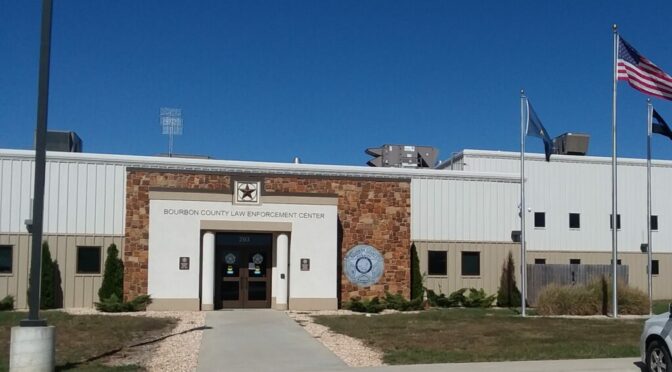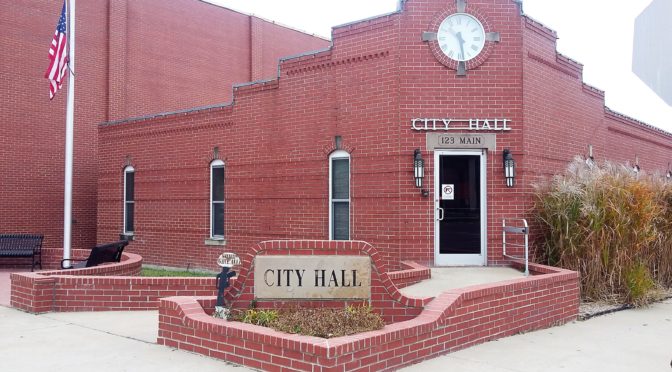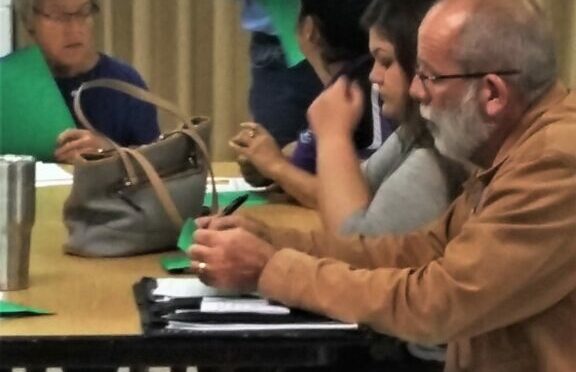|
- GAAP EPS of $0.84; Adjusted EPS (Non-GAAP) of $0.55
- Declares quarterly dividend of $0.535
- Raises 2021 GAAP earnings guidance; affirms 2021 adjusted earnings guidance
Kansas City, Mo., May 6, 2021 – Evergy, Inc. (NYSE: EVRG) today announced first quarter 2021 earnings of $192 million, or $0.84 per share, compared with earnings of $69 million, or $0.31 per share, for the first quarter of 2020.
Evergy’s adjusted earnings (non-GAAP) and adjusted earnings per share (non-GAAP) were $125 million and $0.55, respectively, in the first quarter of 2021 compared with $94 million and $0.41, respectively, in the first quarter of 2020. Adjusted earnings (non-GAAP) and adjusted earnings per share (non-GAAP) are reconciled to GAAP earnings in the financial table included in this release.
First quarter earnings per share were driven higher primarily by favorable power marketing margins gained during the February winter weather event, which also favorably impacted retail sales compared to the prior year. Adjusted earnings exclude power marketing margins gained during the February winter weather event, as well as executive transition, severance, and advisor expenses.
“We are off to a solid start in 2021,” said David Campbell, Evergy president and chief executive officer. “Our team continues to execute – delivering strong financial results in the first quarter and advancing several key regulatory and legislative objectives.”
Net-Zero Carbon Goal
Evergy recently announced its Integrated Resource Plan (IRP), which outlines and accelerates the company’s carbon reduction timeline. Evergy plans to add 3,200 megawatts of renewable generation and retire nearly 1,200 megawatts of coal-based generation in the next 10 years. The plan balances sustainability, reliability, and affordability, and outlines Evergy’s goal to achieve net-zero carbon emissions by 2045, enabled by a combination of supportive energy policies and ongoing technology developments. As part of the plan, Evergy also announced an interim target to reduce its carbon emissions 70 percent by 2030, relative to 2005 levels.
“Our net-zero carbon emission goal establishes a vision of accelerating our transition toward cleaner energy, benefitting our customers, communities and stakeholders,” said Campbell. “Reducing carbon emissions and increasing renewable energy benefits our customers by reducing operating costs and by making our operations more environmentally sustainable. The growth of renewable energy will bring economic benefits to our region through cost-competitive generation and investment in rural communities. Our plan will also assist our customers in meeting their own sustainability goals.”
Earnings Guidance
Evergy has raised its 2021 GAAP EPS guidance range to $3.43 to $3.63, from $3.14 to $3.34 primarily due to the impact of favorable power marketing margins gained during the February winter weather event, which the Company has excluded from its adjusted earnings. The Company has affirmed its 2021 adjusted EPS guidance range of $3.20 to $3.40 and long-term adjusted EPS annual growth target of 6% to 8% from 2019 through 2024.
Dividend Declaration
The Board of Directors declared a dividend on the Company’s common stock of $0.535 per share
payable on June 21, 2021. The dividends are payable to shareholders of record as of May 21, 2021.
This earnings announcement, a package of detailed first-quarter financial information, theCompany’s quarterly report on Form 10-Q for the period ended March 31, 2021 and other filings theCompany has made with the Securities and Exchange Commission are available on the Company’s
website at http://investors.evergy.com.
Adjusted Earnings (non-GAAP) and Adjusted Earnings Per Share (non-GAAP)
Adjusted earnings (non-GAAP) and adjusted earnings per share (non-GAAP) exclude the income or costs resulting from non-regulated energy marketing margins from the February 2021 winter weather event, and costs resulting from executive transition, severance, and advisor expenses. This information is intended to enhance an investor’s overall understanding of results. Adjusted earnings (non-GAAP) and adjusted earnings per share (non-GAAP) are used internally to measure performance against budget and in reports for management and the Evergy Board of Directors. Adjusted earnings (non-GAAP) and adjusted earnings per share (non-GAAP) are financial measures that are not calculated in accordance with GAAP and may not be comparable to other companies’ presentations or more useful than the GAAP information provided elsewhere in this report.
The following tables provide a reconciliation between net income attributable to Evergy, Inc. and diluted earnings per common share as determined in accordance with GAAP and adjusted earnings (non-GAAP) and adjusted earnings per share (non-GAAP).
Evergy, Inc
Consolidated Earnings and Diluted Earnings Per Share
(Unaudited)
| |
Earnings (Loss)
|
|
Earnings (Loss) per Diluted Share
|
|
Earnings (Loss)
|
|
Earnings (Loss) per Diluted Share
|
| Three Months Ended March 31 |
2021
|
|
2020
|
| |
(millions, except per share amounts)
|
| Net income attributable to Evergy, Inc. |
$ |
191.6
|
|
|
$ |
0.84
|
|
|
$ |
69.4
|
|
|
$ |
0.31
|
|
| Non-GAAP reconciling items: |
|
|
|
|
|
|
|
| Non-regulated energy marketing margin related to winter weather event, pre-tax(a) |
(96.5)
|
|
|
(0.42)
|
|
|
—
|
|
|
—
|
|
| Non-regulated energy marketing costs related to winter weather event, pre-tax(b) |
2.0
|
|
|
0.01
|
|
|
—
|
|
|
—
|
|
| Executive transition costs, pre-tax(c) |
5.5
|
|
|
0.02
|
|
|
—
|
|
|
—
|
|
| Severance costs, pre-tax(d) |
1.6
|
|
|
0.01
|
|
|
27.0
|
|
|
0.12
|
|
| Advisor expenses, pre-tax(e) |
1.5
|
|
|
0.01
|
|
|
6.6
|
|
|
0.02
|
|
| Income tax expense (benefit)(f) |
19.7
|
|
|
0.08
|
|
|
(8.8)
|
|
|
(0.04)
|
|
| Adjusted earnings (non-GAAP) |
$ |
125.4
|
|
|
$ |
0.55
|
|
|
$ |
94.2
|
|
|
$ |
0.41
|
|
- Reflects non-regulated energy marketing margins related to the winter weather event in February 2021 and are included in operating revenues on the consolidated statements of comprehensive income.
- Reflects non-regulated energy marketing incentive compensation costs related to the winter weather event in February 2021 and are included in operating and maintenance expense on the consolidated statements of comprehensive income.
- Reflects costs associated with executive transition including inducement bonuses, severance agreements and other transition expenses and are included in operating and maintenance expense on the consolidated statements of comprehensive income.
- Reflects severance costs incurred associated with certain voluntary severance programs at the Evergy Companies and are included in operating and maintenance expense on the consolidated statements of comprehensive income.
- Reflects advisor expenses incurred associated with strategic planning and are included in operating and maintenance expense on the consolidated statements of comprehensive income.
- Reflects an income tax effect calculated at a statutory rate of approximately 22% in 2021 and 26% in 2020, with the exception of certain non-deductible items.
GAAP to Non-GAAP Earnings Guidance
|
Earnings per
Diluted Share
Guidance
|
| 2021 Net income attributable to Evergy, Inc. |
$3.43 – $3.63
|
| Non-GAAP reconciling items: |
|
| Non-regulated energy marketing margin related to winter weather event(a) |
(0.42)
|
| Non-regulated energy marketing costs related to winter weather event(b) |
0.03
|
| Executive transition costs(c) |
0.03
|
| Severance costs(d) |
0.01
|
| Advisor expenses(e) |
0.05
|
| Income tax expense (benefit)(f) |
0.07
|
| 2021 Adjusted earnings (non-GAAP) |
$3.20 – $3.40
|
- Reflects non-regulated energy marketing margins related to the winter weather event in February 2021 and are included in operating revenues on the consolidated statements of comprehensive income.
- Reflects non-regulated energy marketing incentive compensation costs related to the winter weather event in February 2021 and are included in operating and maintenance expense on the consolidated statements of comprehensive income.
- Reflects costs associated with executive transition including inducement bonuses, severance agreements and other transition expenses and are included in operating and maintenance expense on the consolidated statements of comprehensive income.
- Reflects severance costs incurred associated with certain voluntary severance programs at the Evergy Companies and are included in operating and maintenance expense on the consolidated statements of comprehensive income.
- Reflects advisor expenses incurred associated with strategic planning and are included in operating and maintenance expense on the consolidated statements of comprehensive income.
- Reflects an income tax effect calculated at a statutory rate of approximately 22% in 2021, with the exception of certain non-deductible items.
About Evergy
Evergy, Inc. (NYSE: EVRG), provides clean, safe and reliable energy to 1.6 million customers in Kansas and Missouri. The 2018 combination of KCP&L and Westar Energy to form Evergy created a leading energy company that provides value to shareholders and a stronger company for customers.
Evergy’s mission is to empower a better future. Today, half the power supplied to homes and businesses by Evergy comes from emission-free sources, creating more reliable energy with less impact to the environment. We will continue to innovate and adopt new technologies that give our customers better ways to manage their energy use.
For more information about Evergy, visit us at http://investors.evergy.com.
Forward Looking Statements
Statements made in this release that are not based on historical facts are forward-looking, may involve risks and uncertainties, and are intended to be as of the date when made. Forward-looking statements include, but are not limited to, statements relating to our strategic plan, including, without limitation, those related to earnings per share, dividend, operating and maintenance expense and capital investment goals; the outcome of legislative efforts and regulatory and legal proceedings; future energy demand; future power prices; plans with respect to existing and potential future generation resources; the availability and cost of generation resources and energy storage; target emissions reductions; and other matters relating to expected financial performance or affecting future operations. Forward-looking statements are often accompanied by forward-looking words such as “anticipates,” “believes,” “expects,” “estimates,” “forecasts,” “should,” “could,” “may,” “seeks,” “intends,” “proposed,” “projects,” “planned,” “target,” “outlook,” “remain confident,” “goal,” “will” or other words of similar meaning. Forward-looking statements involve risks, uncertainties and other factors that could cause actual results to differ materially from the forward-looking information.
In connection with the safe harbor provisions of the Private Securities Litigation Reform Act of 1995, Evergy, Inc., Evergy Kansas Central, Inc. and Evergy Metro, Inc. (collectively, the Evergy Companies) are providing a number of risks, uncertainties and other factors that could cause actual results to differ from the forward-looking information. These risks, uncertainties and other factors include, but are not limited to: economic and weather conditions and any impact on sales, prices and costs; changes in business strategy or operations; the impact of federal, state and local political, legislative, judicial and regulatory actions or developments, including deregulation, re-regulation, securitization and restructuring of the electric utility industry; decisions of regulators regarding, among other things, customer rates and the prudency of operational decisions such as capital expenditures and asset retirements; changes in applicable laws, regulations, rules, principles or practices, or the interpretations thereof, governing tax, accounting and environmental matters, including air and water quality and waste management and disposal; the impact of climate change, including increased frequency and severity of significant weather events and the extent to which counterparties are willing to do business with, finance the operations of or purchase energy from the Evergy Companies due to the fact that the Evergy Companies operate coal-fired generation; prices and availability of electricity in wholesale markets; market perception of the energy industry and the Evergy Companies; the impact of the Coronavirus (COVID-19) pandemic on, among other things, sales, results of operations, financial condition, liquidity and cash flows, and also on operational issues, such as the availability and ability of our employees and suppliers to perform the functions that are necessary to operate the Evergy Companies; changes in the energy trading markets in which the Evergy Companies participate, including retroactive repricing of transactions by regional transmission organizations (RTO) and independent system operators; financial market conditions and performance, including changes in interest rates and credit spreads and in availability and cost of capital and the effects on derivatives and hedges, nuclear decommissioning trust and pension plan assets and costs; impairments of long-lived assets or goodwill; credit ratings; inflation rates; the transition to a replacement for the London Interbank Offered Rate (LIBOR) benchmark interest rate; effectiveness of risk management policies and procedures and the ability of counterparties to satisfy their contractual commitments; impact of physical and cybersecurity breaches, criminal activity, terrorist attacks and other disruptions to the Evergy Companies’ facilities or information technology infrastructure or the facilities and infrastructure of third-party service providers on which the Evergy Companies rely; ability to carry out marketing and sales plans; cost, availability, quality and timely provision of equipment, supplies, labor and fuel; ability to achieve generation goals and the occurrence and duration of planned and unplanned generation outages; delays and cost increases of generation, transmission, distribution or other projects; the Evergy Companies’ ability to manage their transmission and distribution development plans and transmission joint ventures; the inherent risks associated with the ownership and operation of a nuclear facility, including environmental, health, safety, regulatory and financial risks; workforce risks, including those related to the Evergy Companies’ ability to attract and retain qualified personnel, maintain satisfactory relationships with their labor unions and manage costs of, or changes in, retirement, health care and other benefits; disruption, costs and uncertainties caused by or related to the actions of individuals or entities, such as activist shareholders or special interest groups, that seek to influence Evergy’s strategic plan, financial results or operations; the possibility that strategic initiatives, including mergers, acquisitions and divestitures, and long-term financial plans, may not create the value that they are expected to achieve in a timely manner or at all; difficulties in maintaining relationships with customers, employees, regulators or suppliers; and other risks and uncertainties.
This list of factors is not all-inclusive because it is not possible to predict all factors. Additional risks and uncertainties are discussed from time to time in current, quarterly and annual reports filed by the Evergy Companies with the Securities and Exchange Commission (SEC). Reports filed by the Evergy Companies with the SEC should also be read for more information regarding risk factors. Each forward-looking statement speaks only as of the date of the particular statement. The Evergy Companies undertake no obligation to publicly update or revise any forward-looking statement, whether as a result of new information, future events or otherwise, except as required by law.
|
Investor Contact:
Cody VandeVelde
Director, Investor Relations
Phone: 785-575-8227
[email protected]
|
Media Contact:
Gina Penzig
Manager, External Communications
Phone: 785-508-2410
[email protected]
Media line: 888-613-0003 |
|









